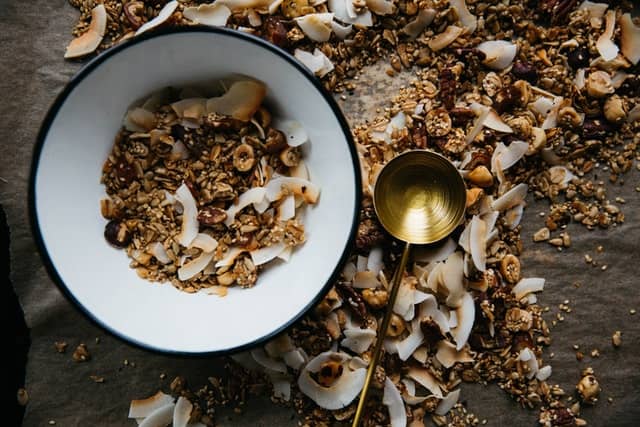Though fruits and vegetables make an integral part of a plant-based diet, you need to include cereals and pulses in your everyday diet to get your daily portion of protein, carbohydrates and fiber. A lot of people ask whether they should eat grains when following a plant-based diet.
So, are grains plant based? Yes, most grains are plant based. Whole grains like wheat, rice, oats, barley, quinoa, millet and corn are entire seeds of plants. This is why foods made from whole grains make an integral part of a plant-based diet.

Let us discuss more about grains and their content to find out whether you should eat them as a part of your plant-based diet.
Why Grains Are Plant-Based?
A plant-based diet focuses on eating minimally-processed foods obtained from plants. Grains are the grain part of cereal plants made up of three different components containing a variety of nutrients in each. A whole grain is composed of germ, endosperm and bran while a refined grain that undergoes crushing, rolling or cracking gets rid of any of these parts. All whole grains as well as most refined grains are considered plant-based as long as they are not processed extensively to remove the nutrients.
What Are The Main Ingredients In Grains?
Whole grains like wheat, rice, oats, barley, quinoa, millet and corn are entire seeds of plants. They contain bran on the outer skin which contains the most nutrients. Refined grains are processed to remove the bran and the germ.
Whole grains can be consumed in different ways, either as whole or cracked, split or ground. They are also milled to get flour used to make cereals, breads and other foods. This is why foods made from whole grains make an integral part of a plant-based diet.
Grains Nutrition
Grains provide essential nutrients required to stay healthy, despite the type of diet you follow. Whole grains are high in nutritional value and are recommended for consumption instead of refined grains. When processed, the grain loses about 25 percent of its protein content and at least 17 key nutrients.
Here is the nutritional breakdown of some of the most popular grains:
| Grain (1/4 cup) | Calories | Fat | Carbohydrate | Fiber | Protein |
| Barley | 176 | 0.6 | 39 | 7.8 | 5 |
| Wheat | 150 | 0.5 | 34 | 4 | 5 |
| Millet | 189 | 2.1 | 37 | 4.3 | 5.5 |
| Oats | 180 | 3 | 30 | 5 | 7 |
| Quinoa | 156 | 2.6 | 27 | 3 | 6 |
| Rice | 171 | 1.3 | 36 | 1.6 | 3.7 |
Grains are high in carbohydrates, low in fat and an excellent source of proteins. They provide different amounts of minerals, vitamins and fibre along with iron, magnesium, B-vitamins and iodine. The nutritional content of grains can vary depending on the variety and growing conditions.
Each component of the grain has different nutrients. For example, the germ contains healthy fats, vitamin E, antioxidants and B vitamins while the bran contains antioxidants, a lot of fiber, iron, magnesium, zinc and B vitamins. The endosperm is rich in starch carbohydrates and provides some portion of vitamins and protein.
Conclusion
So, grains are certainly a great food to include in a plant-based diet on a daily basis. Zinc and B-vitamins are the most important reasons for dieters to include whole grains in their diet. Consider adding vitamin C to the meal to boost the absorption of iron. Use methods like fermenting, soaking and sprouting grains to improve zinc absorption.
Most Popular Questions: